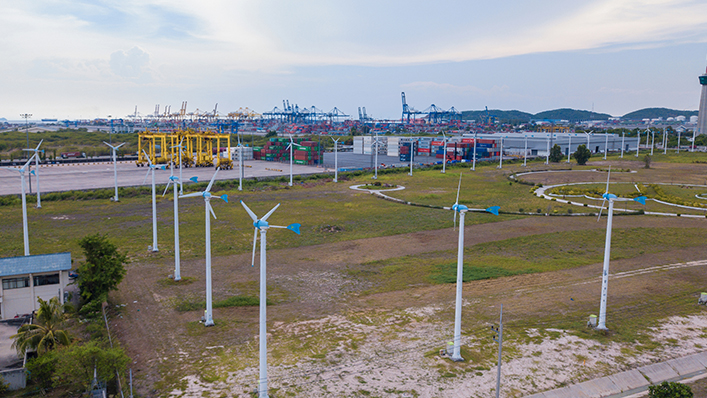
The four TESSD informal working groups focused on specific sectors and issues, guided by the High-Level Stocktaking Event held on 2 December 2022 and the Statement by TESSD Co-Conveners issued in November.
In the Working Group on Trade-related Climate Measures, members reviewed carbon measurement standards and decarbonization measures in the iron and steel sector. The WTO Secretariat briefed on the 9 March event “Trade Forum for Decarbonization Standards,” which aimed to promote coherence and transparency in the steel sector. The Secretariat also presented on decarbonization standards in the iron and steel sector and the role of WTO in supporting coherence based on a recent information brief.
The discussion provided an opportunity for members to share their perspectives and discuss ways to work together towards reducing carbon emissions in the iron and steel sector. The session also included an exchange among members on their experiences with the development and implementation processes of trade-related climate measures, supported by a briefing by the Secretariat on the Thematic Session on regulatory cooperation on climate change, which was held on 7 March 2023.
The Working Group on Subsidies focused on agricultural subsidies in its meeting. Members discussed the environmental effects of agricultural subsidies and the transparency of these measures as well as their experiences with the design of subsidies. The UN Food and Agriculture Organization (FAO) presented on the environmental effects of agricultural subsidies, followed by Paraguay’s presentation on good agricultural practices and environmental programmes notified under the Agreement on Agriculture. Brazil also shared its experience in using subsidies to promote environmental sustainability in agriculture, while the European Union presented on the environmental dimension of its Common Agricultural Policy.
In the Working Group on Environmental Goods and Services, members discussed the role of trade in promoting renewable energy, in particular solar energy, providing concrete examples and insights on key goods and services in the sector, bottlenecks that hinder their dissemination, challenges faced by developing countries, and opportunities and approaches to promote trade. The Secretariat reported on renewable energy services and related services that support the sector, while the United Kingdom illustrated how value chain analysis can be useful in building an evidence base on the role of environmental goods and services and related policies in promoting renewables. LONGi Green Energy Technology Co., Ltd. highlighted trade-related challenges and opportunities in the solar energy sector. The International Solar Alliance (ISA) briefed members on its activities in promoting access to and deployment of solar energy technology in developing countries.
In the Working Group on Circular Economy — Circularity, members discussed the trade aspects of batteries as a key component for the renewable energy sector. The OECD and the National Board of Trade Sweden — Kommerskollegium presented their respective studies on trade policies to promote the circular economy, focusing on lithium-ion batteries. The Secretariat reported on mapping measures related to the circular economy in the WTO, with a focus on measures relating to batteries. Glencore, Contemporary Amperex Technology Co. Limited (CATL) presented on their activities regarding circularity of batteries and trade-related challenges and opportunities, while the social enterprise Closing the Loop presented on trade-related challenges in developing countries regarding battery recycling.
Launched in November 2020, TESSD seeks to advance members’ discussions at the intersection of trade and environment and complement the work of the WTO Committee on Trade and Environment. The initiative, which is open to all WTO members, is currently co-sponsored by 74 members representing all regions and all levels of development.
Share
Reach us to explore global export and import deals